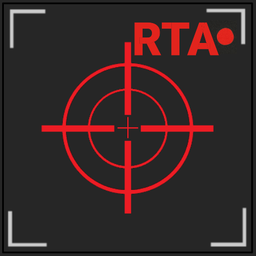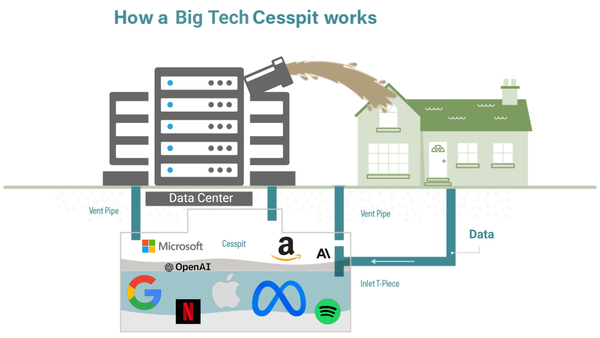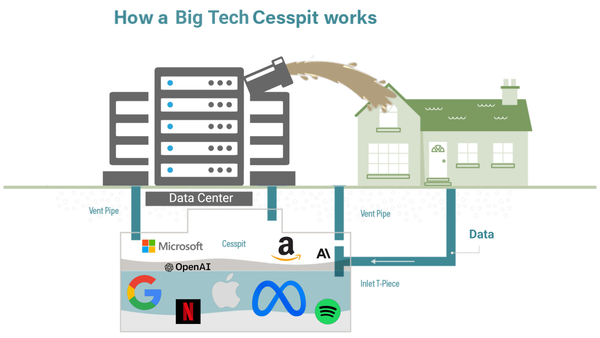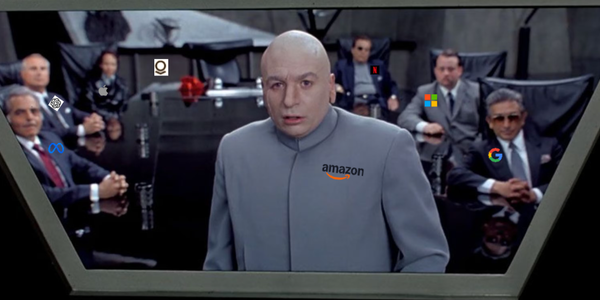Common objections debunked
Your one-stop-shop for convincing people to take online privacy seriously
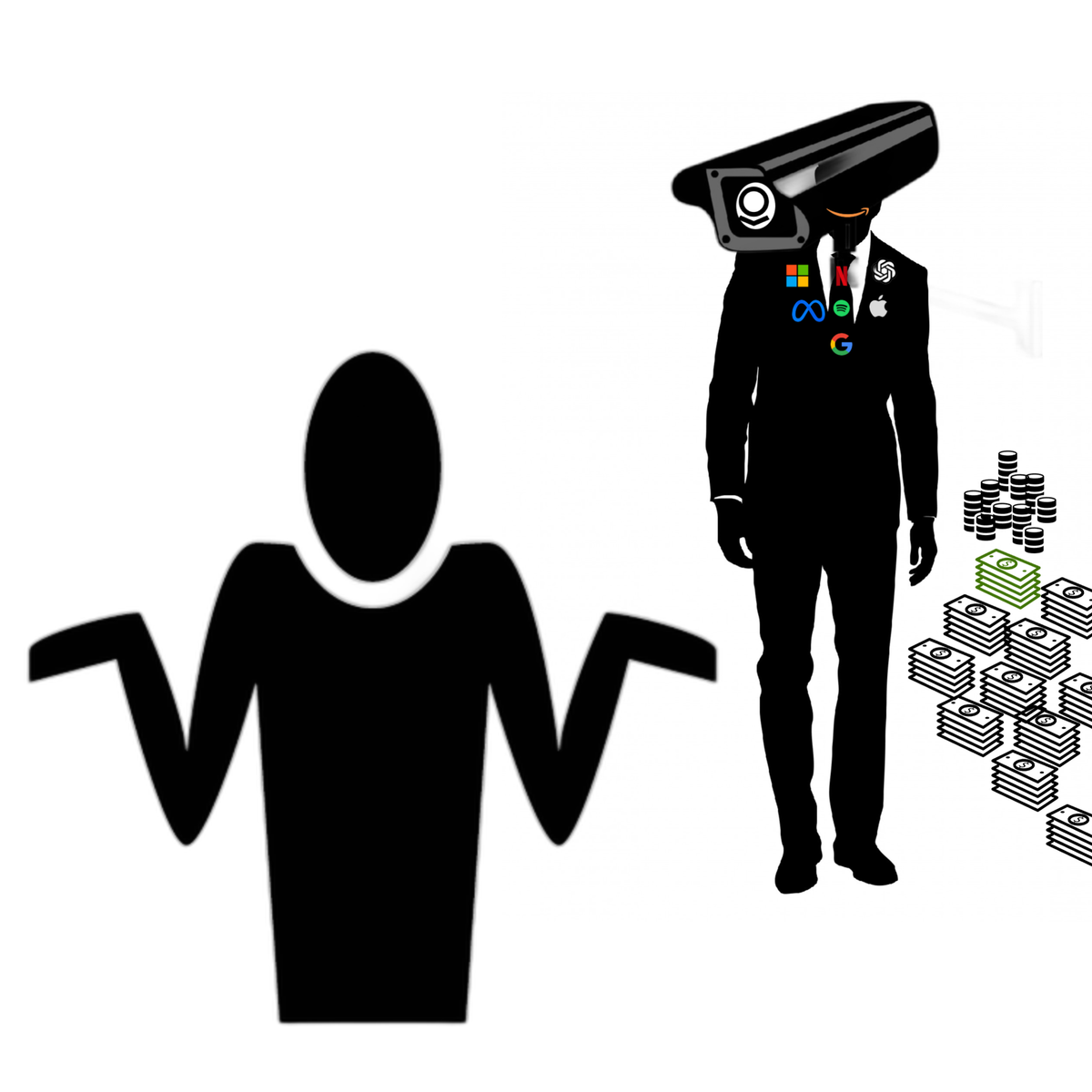
We at the Rebel Tech Alliance are on a mission to help as many people as possible switch to ethical tech and improve their privacy. To do that we provide actionable info and resources, such as the Big Tech Walkout 2025 programme, our Learn section of our site, and our many Resources.
As you start your own Walkout you immediately start to benefit yourself and your family. To make a real difference collectively, however, we need to move in the millions. And that's no easy task when so many are afflicted with tech apathy and addicted to convenience.
So this post is about how to debunk the objections you get from such people, and persuade them to take online privacy seriously. And to do something about it (like take part in the Walkout!).
Full disclosure: the main reason I'm against big tech is the threat to democracy. But this is big tech's 'endgame' problem. For some people reaching that conclusion is too much of a leap, so we try to outline other issues that contribute to that endgame.
The four main objections
There are four main objections:
- "But personalised ads are really convenient!"
- "They've already got all my data"
- "I have nothing to hide"
- "Why should I care?"
"But personalised ads are really convenient!"
Taken from this page on our website: https://www.rebeltechalliance.org/personalisedads.html
The main retort to this is
"Personalised ads might feel convenient but you need to zoom out, it's not just about you - the mechanism that enables it is essentially a global data free-for-all and fuels a global surveillance machine. It leaves you open to persuasion and fraud, and is a threat to democracy"
A companion retort is
"But don't you find it creepy how you can be talking about something and then you see ads for it immediately? How do you think they do that?"
Choose which one to use based on who you are saying it to. If they've mentioned the creepiness of ads then use the second one, if not you could start with the first. The first makes a big jump from ads to 'threat to democracy', and - whilst true - this leap can be too far for some people. So perhaps start with the creepiness angle.
The mechanism: the RTB system and data brokers
The mechanism mentioned in the first retort is primarily the RTB system (Real Time Bidding). We explain what that is on our site, but to summarise: it's an automated online auction system in which advertisers bid for the right to place an ad in front of you (on the web page you just loaded). There are trillions of auctions per second, all over the world. The level of compute and the sophistication of the algorithms is mind-boggling.
Unfortunately it's not only advertisers who take part in the auctions - data brokers do as well. And not only that, it's not just the winner who gets the data - it's everyone who took part in the auction. So it really is a free-for-all.
Why does the data broker thing matter? Because their whole business model is being able to have as many 'data points' on as many people as possible. They sell this to anyone willing to pay. Again: if that's just to persuade you to buy products, then fine. But it can also be for more nefarious means, such as changing how people vote, or finding and persecuting specific groups of people.
"They've already got my data"
From our site: https://www.rebeltechalliance.org/gotmydata.html
The main retort to this is
"No they don't - they need to continually replenish their profile on you for it to be useful. If you cut off the supply now, then their power fades."
That's why their data harvesting is so aggressive. It needs to be, otherwise their promise to advertisers of being able to predict what you'll want, and when you'll want it, cannot be fulfilled.
You just need to step off the playing field and their game comes grinding to a halt!
"I have nothing to hide!"
From our site: https://www.rebeltechalliance.org/gotmydata.html
The main retort to this is:
"Actually you've got nothing to show! It's nobody else's business what you like and where you go. Why would you leak that to giant corporations run by sociopaths?"
Another is:
"Would you be happy to give me your email password, then? Or perhaps install a security camera in the shower?"
This objection sort of implies that they don't value privacy, even though the main sentiment is "I'm not a criminal". Big tech were very clever to get us to frame it this way but when you realise the one-sided nature of the relationship (you as an individual vs a massive corporate profit machine) it's clear that you should flip it to "I've got nothing to show".
If that's too abstract for them then fall back to the old favourite - their wallet:
"You do have something to hide: your money. Ever heard of price gouging, or fraud?"
At the individual level these are real threats that we face everyday - prices presented just for you, based on your data profile (surveillance pricing). Super creepy, and costing you money. And then there's the ever present threat of having your data caught up in a data breach, where hackers have broken into a service you use. Limiting the data you give away to these services, and avoiding the biggest platforms, will reduce this problem massively.
"Why should I care?"
Taken from, amongst other places, this page on our website: https://www.rebeltechalliance.org/whyshouldicare.html
This is such a broad question that it is hard to answer. You are better off trying to first establish if their main objection is one of the other three above.
However, if you're still struggling to convince them, or if they demand a summary, then here are the main arguments against creepy online surveillance. I've started with the most personal - with an immediate effect on the individual - and move out to the problems that have a collective effect on society as a whole:
- Being ripped off. The data used to personalise your ads can be used to price gouge you (charge you more). Think flight prices or insurance premium hikes. This is known as surveillance pricing.
- Data breaches. That data (about what you like, who you associate with and where you go) is not well protected by big tech companies (and others) that harvest it. It is released into the RTB system and available to anyone posing as an advertiser. Data brokers do this, and once the data is out there you can't put the toothpaste back in the tube. There are multiple bad consequences of this data breach, but the focus of this point is that your credentials and behaviour profile are regularly hacked. Better that this data never gets out there - given the crazy number of regular data breaches that happen every year.
- Free will. In the social media context you are open to manipulation. In the same way that your behavioural data can be used to persuade you to buy products via ads, it can also be used to persuade you to vote differently in elections, or change your opinions in other ways. If the choice of posts you are presented with is determined by big tech algorithms, whose interests does it really serve? Yours, an individual, or a giant corporation that is really an advertising business? And because that targeted advertising model can be abused by anyone willing to pay, you are constantly being bombarded with propaganda from private and government sources. You should quit big tech algorithms and make your own mind up about what entertainment and products you see.
- News bubbles. Even outside of social media, for example in your Google or Apple news feed, you are open to manipulation. News algorithms have the same bias problem as social media ones - when you factor in billionaire ownership of the major news outlets. And even if they stick tightly to what you want to see, you are being kept in an information bubble - and will never see opposing views.
- Discrimination. If you are in a minority group - be that race, mental health, physical health, political, whatever - you are open to being targeted if the majority political forces want to. Since you are revealing your behaviour and preferences every day by leaking data online, you are easy to predict and target. Remember - targeting is targeting, whether for ads or with oppression and weapons. Just ask the Uyghurs, or the Rohingya of Myanmar, or anyone dark skinned in the US right now (ICE). The roll out of facial recognition software, and the bias and error that is programmed into it, is growing problem too.
- Child protection. Social media companies are obsessed with 'user number growth'. To do this they deliberately make their products addictive and push sensationalist content via their algorithms. Once their user number growth slowed down (in the last few years) they turned to children to keep the numbers up. I strongly recommend watching the documentary Can't Look Away for an update on how big tech social media now targets children, and doesn't care if they're groomed or die.
- Bullies (monopolies). No one likes a bully, and big tech are just that. They are the big kid in the playground that beats up the other kids and takes their lunch money. They had one moment of innovation at the start and then just bought out the competition until they became monopolies. More info here on our site. So if you're a fan of healthy competition then you should avoid using big tech - they are anti-competitive.
- Death-tech. Once growth slows in surveilling the citizens of the world big tech turns to government for lucrative contracts. Where's the biggest profit for surveillance experts? Weapons. After all what do they need if not better targeting, and who has perfected data-led targeting over the last 25 years (using data you leaked to them)? They're all at it, but Palantir stick out as particularly sinister.
- Environmental impact. In the age of AI big tech has become an environmental disaster. Read more in the data center sections of our indepth blog posts on Google and Meta.
- Billionaire agendas. Over the last 25 years we have given up our behavioural data to these tech companies, and made them incredibly wealthy. They are led by billionaire CEOs who have an agenda. These days that agenda is not just making more money, but it has swung towards the hard-Right. Some call it techo-fascism, others call it techno-populism. The most prominent case of this is Elon Musk using X to push his white supremacist hard-Right agenda.
- Enriching freaks with fascist tendencies. The tech bros of Silicon Valley are not normal people. Enriching them to billionaire status via their creepy surveillance business model was a terrible idea. They have deeply anti-human beliefs, variously collected into the TESCREAL acronym, that are now coming to light as fascist-inclined. I recommend Gil Duran's blog The Nerd Reich for a deeper understanding of this. He widens the scope to include the 'power behind the throne' types like Peter Thiel, co-founder of Palantir.
- Threat to democracy. Following on from the last point, this is what really concerns me. Put all the downsides of big tech together and it adds up to a threat to democracy itself. See more on this page from our site, but in summary these tech billionaires that we've created are not fans of democracy, and are actively pushing the world's move towards the far Right.
A threat to democracy? Really?
Yes. After the Cambridge Analytica scandal (and specifically after seeing the documentary The Great Hack on Netflix - strongly recommended!) it immediately became apparent to me that social media is a threat to democracy. Even before the FBI determined that Russia really did intefer with the 2016 US election. Cambridge Analytica boasted of having 5000 data points on every voter, but these days, in the age of AI, it's a million times worse.
Despite all the fun of social media, and the connections to friends all over the world, it is obvious now that the big tech companies like Meta, Google, Snap, Microsoft and Tiktok are not interested in curbing the misuse of their platforms because that would reduce advertising revenue.
Protecting democracy is in opposition to their business model, so social media firms don't do it.
Another great documentary on this subject is The Social Dilemma. And a great book is Careless People. These, and The Great Hack, are easy watches/reads and make clear the kind of callous people and institutions we're dealing with.
Anyone living in the US at the moment will need no convincing that their civil liberties are being weakened and that democracy is being dismantled. They may not be aware of just how much help the government is getting from big tech. And the reciprocation.
In Europe too and around the world politics are taking a turn towards populism and the far right. Again, people may not be aware of how much tech bro billionaires are actively trying to make this happen. Elon Musk's support for Germany's neo-Nazi party AfD, and for Britain's far-right Tommy Robinson, is most visible. Google and Apple are happy to remove apps that show you if ICE are in the neighbourhood. And Peter Thiel's love of the Dark Enlightenment ideology pushes this move to the far right too. The same Peter Thiel who enabled JD Vance's rise to vice president. And the same Peter Thiel who co-founded Palantir, the company leading the charge on centralising databases of citizen data to create a full-blown surveillance state. The same Palantir that has a contract with the UK's NHS to centralise all the patient data....
There are alternatives!
Hopefully this post helps you convince your friends and family that big tech, via their creepy and corrosive business model, really are a problem.
In an ideal world our governments would regulate big tech and solve the problem for us, but as we explain on our site, that never happened so it's up to us as individuals to protect ourselves.
Sometimes people acknowledge the problem but then throw their hands up and say "but I rely on their products!". We have good news: there are plenty of ethical alternatives, and we list them on our website! The Alternatives sub-menus are organised by tech category.
The Big Tech Walkout
Once you get some interest in the topic of digital privacy then please encourage them to do something about it by following the (very easy) steps of the Big Tech Walkout 2025 programme. The steps are here:

(Some steps are labelled as 'October' but it can still all be done by Christmas. Any action is better than no action!)
Enjoy!
The Rebel Tech Alliance is a non-profit set up to undermine big tech's creepy business model: surveillance capitalism. Our mission is to help as many people as possible to move to ethical tech.
We list all the ethical alternatives you'll need on our site - work your way through the 'Alternatives' sub-menus.
The privacy you get from Ethical tech will
- remove ads from your life
- defund the broligarchy
- help protect democracy

